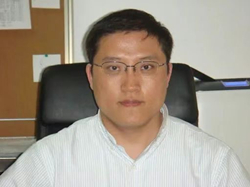Home> Academic Sessions
Session 32: Research on structural bioinformatics integrating artificial intelligence
Updated: 2024-07-26
In 2020, AlphaFold2 achieved remarkable breakthroughs in the field of protein structure prediction, sparking a surge of research combining artificial intelligence (AI) and structural bioinformatics, further advancing the discipline of life sciences.
By learning from vast amounts of biomacromolecular data, AI algorithms are able to identify hidden patterns and associations, accelerate the prediction of protein tertiary structures and enable more practical protein design. They can capture the correlations between known protein structures and sequences more accurately, predict the impact of structural changes on protein functions, annotate protein functions and analyze protein interaction networks.
This revolution is set to profoundly upgrade the research paradigm in life sciences, injecting new vitality into drug development, disease treatment and the advancement of biological sciences.
This session on the integration of AI into structural bioinformatics will invite distinguished experts in the field to share progress in their research, and explore the application prospects for the discipline in life sciences.
Chairs

Li Guohui
Researcher, Liaoning Normal University & Dalian Institute of Chemical Physics, Chinese Academy of Sciences (CAS)

Cao Yang
Professor, Sichuan University
Invited speakers & reports
Bu Dongbo
Researcher, Institute of Computing Technology, CAS
Report: ProAffinity: A protein affinity prediction algorithm
Huang Shengyou
Professor, Huazhong University of Science and Technology
Report: AI-based optimization of cryo-EM density maps and structural modeling
Gong Haipeng
Associate professor, Tsinghua University
Report: Protein structure prediction and generation
Yang Jianyi
Professor, Shandong University
Report: AI-based RNA structure prediction
Zhang Guijun
Professor, Zhejiang University of Technology
Report: Protein folding and polymorphic conformation prediction methods
Li Yang
Researcher, National University of Singapore
Report: High-precision RNA structure prediction combining RNA language models and deep potential
Zhou Hangyu
Institute of Systems Medicine, Chinese Academy of Medical Sciences & Suzhou Institute of Systems Medicine
Report: Using AI technology to combat infectious diseases: Progress, challenges and prospects
Zhang Yan
Institute of Biophysics, CAS
Report: IsoVEM: Transformer-based accurate and robust isotropic reconstruction methods for VEM
